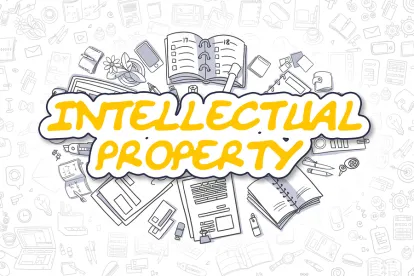Startups and early stage companies have many things to focus on and worry about, and the protection of intellectual property (IP) is likely not on the top of the list, if it’s on the list at all. Why? Because a business startup is focused on sales and revenue, cash flow and profits, and quite frankly sometimes just surviving the initial launch and startup of their new business.
The marketplace is more competitive than ever, with consumers having so many choices among all the emerging technologies and businesses and the points of differentiation becoming more subtle. This growing challenge makes protecting IP critically important and is why it needs to be near the top of the list of a startup’s priorities. The four types of IP are among a startup’s most valuable business assets: trademarks, copyrights, patents, and trade secrets.
As we covered in a prior blog post, IP is often misunderstood and confused. To most people and businesses, everything seems to be a copyright, when it may actually be a trademark that applies or vice versa. To protect IP, you need to know what it is – identifying what type of IP we’re talking about is often times the most difficult thing to do.
So what is IP and how can a startup protect it?
Trademarks
A trademark is a word, name, symbol, or logo used in connection with a product or service. Trademarks help to identify and distinguish the product or service from its competitors. Although "common law" rights in a trademark can be established merely by using it in commerce (e.g., via sales for products or advertising for services), registering the trademark provides the holder with the legal presumption of exclusive ownership, and notifies the public that the user claims ownership.
Trademarks can be protected through registration with the state or federal government. If a trademark is registered, someone with a similar mark who applies for protection may be denied and should consider ceasing to use the possibly conflicting mark to avoid being challenged or sued. Trademarks can be federally protected by an “actual use” registration or by an “intent to use” (ITU) registration. The ITU applies if the owner has not yet begun using the mark, but has a bona fide intention to use it in the near future such as with a planned future product. In this regard, the ITU can act as a form of “pre-reservation” of the mark to help limit surprises or challenges in the future when the new product is launched.
Beyond registration, trademark owners can also hire a "watch service" to monitor trademark registries for copycats, or to watch domain names to see if another person or entity is selling competing products online. Another cost-effective way to remain aware of whether your trademark is being used, or appears in the news or on the web, is to create a Google Alert. However, it would be risky to rely solely on Google alerts, or simply periodically "surf the web" yourself, because those searches do not flag trademark registries or domain names.
Copyrights
A copyright protects an original work of authorship "fixed in a tangible medium of expression." For example, it protects books and other written works, artwork and other images, music, and many other things. While copyrights are often associated with protecting novelists and musicians, they can also be used to protect computer code, software, and apps, which continues to be one of the fasting growing business segments of startups and emerging companies. Although copyright rights begin when the work is created, the copyright must be registered before a lawsuit can be filed for infringement of a U.S. work, and especially to be eligible to be awarded statutory money damages and attorneys' fees. Therefore, startups should look to register their most important copyrighted works.
Beyond registration, if someone is infringing a copyright (or a trademark or patent), then an attorney can send a cease-and-desist letter to the infringer. Also, if the infringement is taking place online, a Digital Millennium Copyright Act (DMCA) Takedown Notice can be sent to the web host or platform. Although issuing the DMCA Takedown Notice in copyright matters does not entitle the owner to damages, the Internet service provider is required to remove material that appears to infringe a copyright.
Patents
Patents exists in a few different areas, with the two most common being utility and design patents. A utility patent covers an invention that produces a function or result, such as an engine design or other mechanical or electrical device. A design patent protects purely artistic or ornamental design — a non-functional characteristic or feature of a manufactured item. To protect a patent in the USA, it must be registered with the U.S. Patent and Trademark Office – there’s no "common law” use protection for patents. A U.S. patent gives the owner the exclusive right to exclude others from making, using, offering to sell, selling, or importing the product for a specific period of time, such as 20 years for a “regular” utility patent (or up to one year for a “provisional patent”).
Trade Secrets
Finally, a trade secret is highly confidential information and materials such as a startups’ product development plans, financials, customer lists, innovative ideas, or computer software and applications. One of the best ways to protect a trade secret is to take sufficient reasonable measures and precautions to keep information and materials confidential, such as maintaining strict company policies and access by only those "with a specific need to know." Employees, independent contractors (such as consultants or other non-employee workers and representatives), and business partners can be required to sign confidentiality/trade secret non-disclosure agreements (NDAs). Trade secret protection can extend for an unlimited duration, unlike the limited duration patent protection, provided it’s kept "secret." Therefore, it may be wise and more prudent for a startup business to consider protecting its new product or service (such as its app or software) via trade secret protection rather than the limited, and often rather costly, patent protection.
Okay, so growing sales and revenue, increasing cash flow and profits, and just simply surviving the initial launch and startup of your new business is critically important; without accomplishing these things, your new venture will no longer be a startup, but rather a “closed-down.” However, without identifying and protecting your name (trademarks), your website and manuals (copyrights), and your technology (patents and trade secrets), it will be almost impossible to operate and sustain your company after the initial startup phase. Therefore, plan for the future and protect your IP from the start.




 />i
/>i

